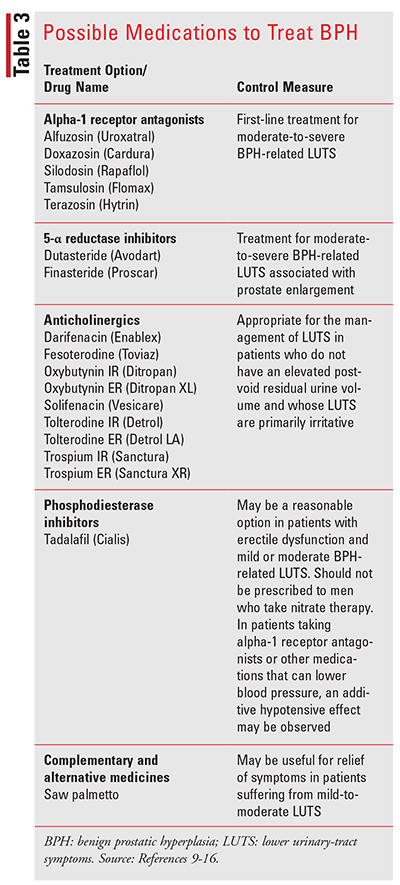
While BPH medications are a common choice for men with the condition, there are many different kinds available. Different types of medicines will treat different symptoms. And, like any other medication, each one may have its own side effects and risks. It’s important to ask your doctor about the possible interactions and side effects of the medication before starting it. Below, we’ll discuss some of the most commonly used medications for BPH. If you have questions, contact a licensed healthcare provider.
The first type of BPH medication is an alpha-1 blocker, which relieves urinary symptoms. This type is better for men who have smaller prostate glands. While alpha-1 blockers are the most common choice for BPH patients, there are also many other options available. In the case of smaller prostates, alpha-1 blockers may not be the best option. For larger prostates, however, 5-alpha-reductase inhibitors are a good choice. These medications have less side effects and reduce the need for surgical procedures.
The 5-ARs can be an option for men who are not interested in surgery. These drugs can prevent the growth of the prostate and improve urine flow. They can ease many of the symptoms of BPH, but they can take up to 6 months to have full effect. These medications must be taken consistently to see results. They can also cause birth defects in male babies. So, be sure to ask your doctor before starting any treatment. If you experience any side effects, contact your healthcare provider.
There are several BPH medications available. The main drug used for treating BPH is an alpha blocker. These drugs relax the muscles in the prostate and bladder neck, allowing urine to flow. The downside of these medications is that they can have negative effects on your body and heart. It’s important to discuss these side effects with your healthcare provider before taking any medication. Your healthcare provider should be able to tell you which ones are best for you.
While these drugs can help with the symptoms of BPH, they can cause side effects. While they have fewer serious risks than other treatments, they can have some unpleasant side effects. Some medications have a tendency to lower blood pressure, which can lead to other health issues. For this reason, you should talk to your healthcare provider to find the right medicine for you. They’ll be able to guide you through all of the possible side effects of the drug.

While BPH medications have side effects, they are generally not life-threatening. They work by blocking hormones that promote prostate growth. However, they don’t always work as well for every patient. The size of your prostate doesn’t always match the severity of your symptoms. For example, alpha blockers will not help a man with a smaller prostate. A man with a larger prostate will likely have more serious side effects, including decreased sex drive and difficulty achieving an erection.
Although BPH medications are able to address the symptoms of BPH, they don’t cure the condition. The only way to treat the symptoms of BPH is to consult a healthcare provider. The best way to decide which medication is right for you is to discuss your health history. You should also be aware of any family history of BPH and ask your doctor about it. The best medications will be able to treat BPH quickly and safely.
If your doctor has diagnosed BPH and you are looking for treatment, you need to talk to your doctor to determine the best option for your situation. You can also ask your doctor about the side effects of medications he or she may prescribe. It’s important to discuss any concerns you have with your doctor before deciding which one is right for you. The benefits and risks of various medications for BPH are worth discussing with your healthcare provider.
Although side effects with BPH treatment are rare, you should contact the health site https://phuketbulletin.co.th/
if they occur. While most men will see positive results, there are some potential risks of using medications for BPH. Some of these side effects include: allergies, insomnia, dizziness, and constipation. If you are allergic to any of the medicines, you should talk to your doctor. You should also discuss your medical history with your doctor.